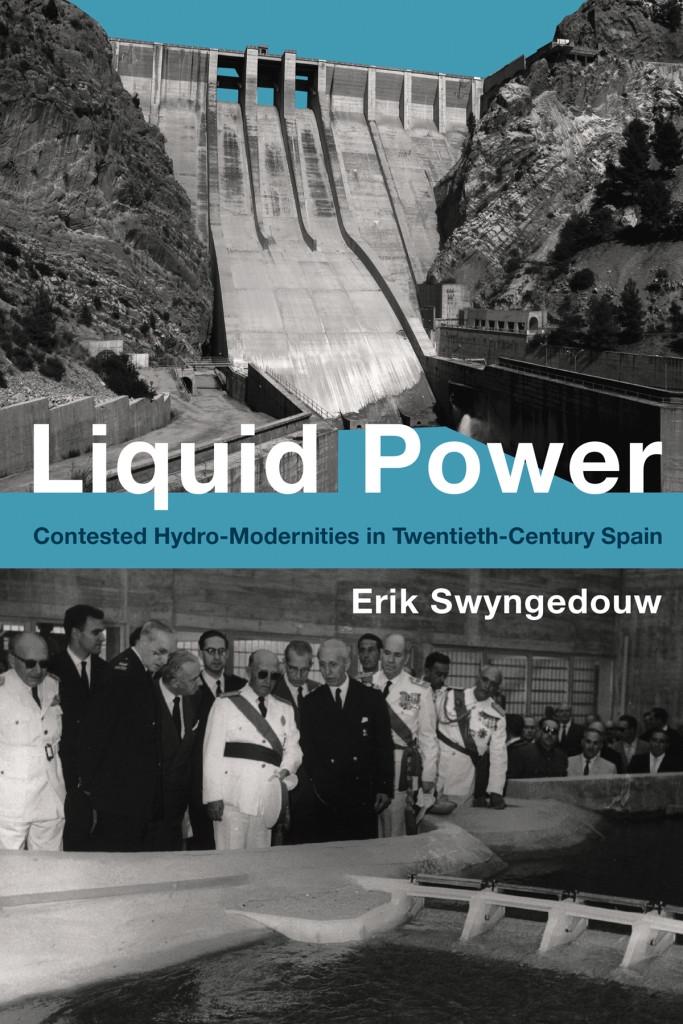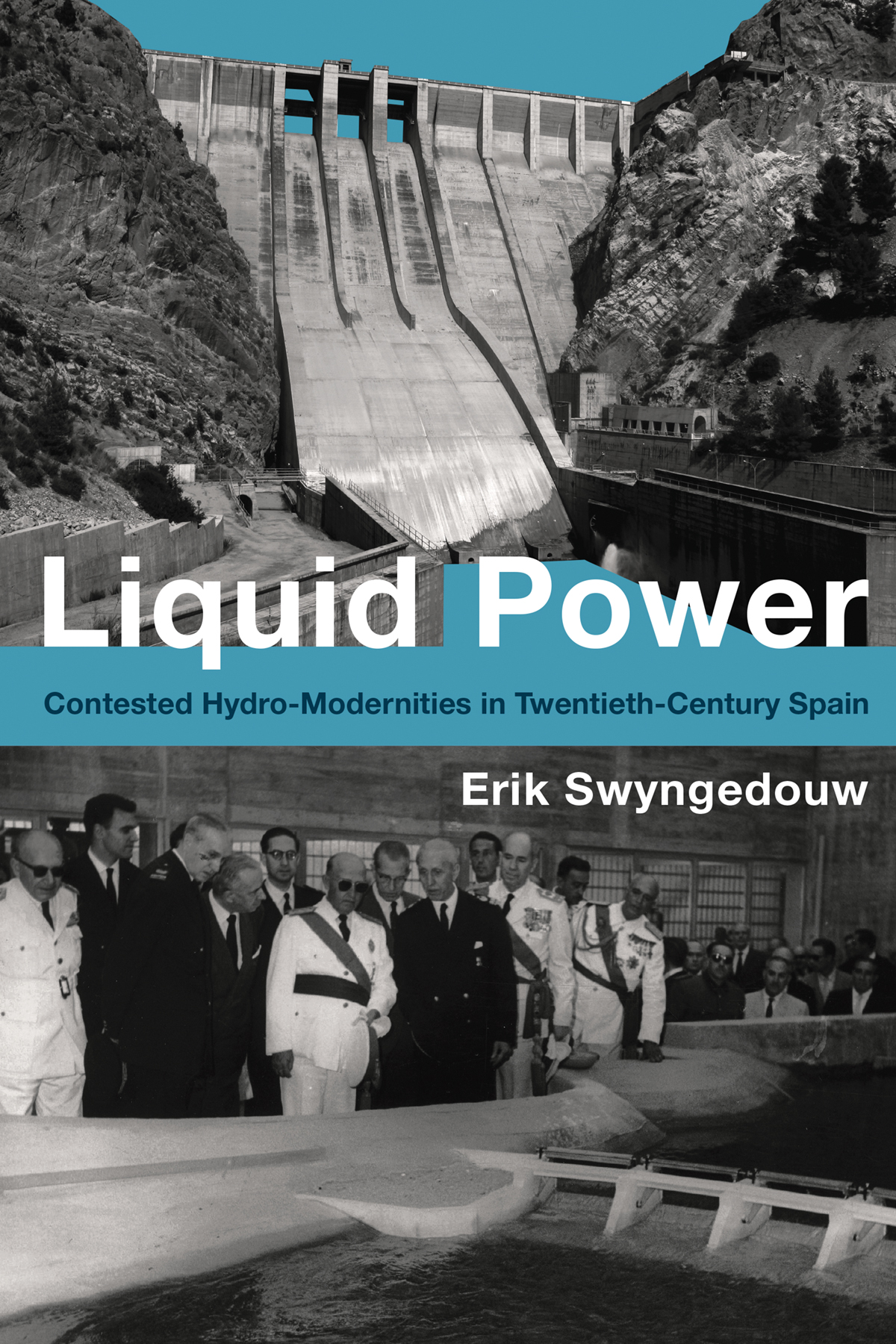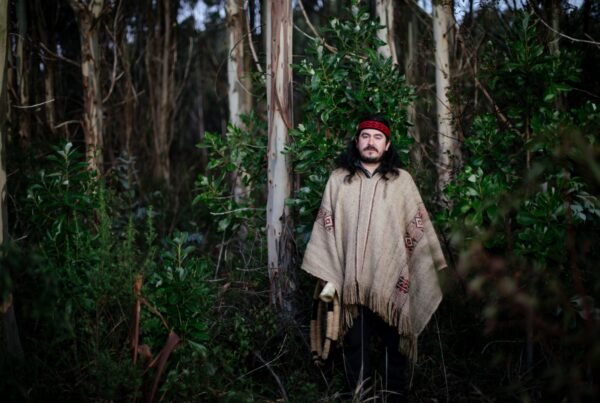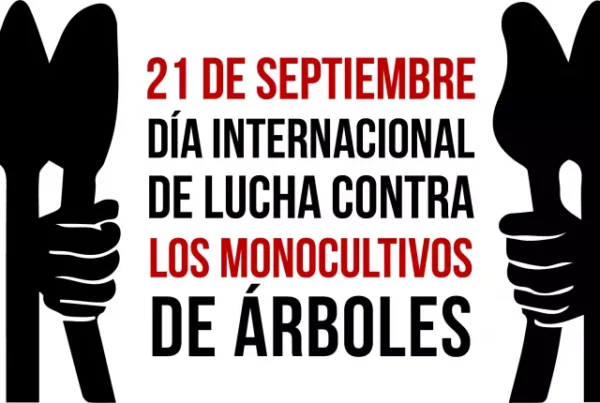Erik Swyngedouw, Professor of Geography at the University of Manchester, on his new book, research experiences in Spain, Spanish literary inspirations and next research project.

The cover of Erik Swyngedouw’s new book, Liquid Power: Contested Hydro-Modernities in Twentieth Century Spain. Source: https://mitpress.mit.edu/books/liquid-power
For most (urban) political ecologists, Erik Swyngedouw needs little introduction. Erik is a prolific writer and inspiring intellectual whose research over the past decades has focused on geographical political economy, the governance, politics and economics of water resources and, more recently, interrogating the political. Two decades of research in Spain, from which many articles were written including an historical reading of the production of the Spanish waterscape and the role of desalinisation as a hydro-social fix, have culminated in Erik’s new book Liquid Power published by MIT Press. We recently asked Erik a few questions about his new publication, his research experiences in Spain, his Spanish literary inspirations and his next research project.
“I don’t particularly care about water, I don’t particularly care about Spain”, several of us heard you say at the Association of American Geographers conference in Chicago and recently at an ENTITLE course in Berlin. Can you elaborate on this statement? If it is the case, why should scholars of water or Spain care about your new book?
These statements were of course meant to indicate that the intellectual and scholarly focus of the book was neither on Spain nor on water per se. I wish the main messages of the book not to be received first and foremost as a contribution to Iberian scholarship or to water studies. Rather, I see the book as an intervention in, and hopefully a scholarly contribution to, reconceptualising the multiple relationships between nature, society, and power in a way that transcends the traditional binary presentation of nature on the one hand and society on the other. I mobilise H2O and Spain’s tumultuous socio-economic and politico-cultural transformations during the 20th century as a heuristic device. It is used as a methodological entry, and provides narrative anchors, for excavating the society-nature imbroglio in a way that transcends the binary conceptualisation of the nature-society relationship that has dominated (and plagued) much of environmental theory and practice during the 20th century. Moreover, the book demonstrates how socio-physical transformations unfold through myriad of interrelated social power relations and dynamics.
The ultimate objective of the book is to demonstrate than every political project is also an environmental project, and every environmental project is deeply inserted in specific political projects.
Furthermore, while there is proliferating and convincing argument that indeed the society-nature assemblage requires a set of new theoretical and conceptual tools, it is in fact extremely difficult to unfold such argument through concrete historical-environmental transformations. I hope, therefore, that the book and its substantive foundation in Spain’s tumultuous hydro-social development will also be read as an experiment in undertaking concrete political-ecological research that binds together the social and physical, the local, the regional, the national and the global in ways that is insightful for the growing numbers of researchers that struggle with ways of how to unfold a substantive political-ecological analysis.
So, in this sense the book is not primarily about Spain or about water. It mobilises water within the unfolding of Spain’s historical-environmental transformations with the objective to say something insightful about how nature, society, and power fuse together. In doing so, it pulls together, in a substantiated manner, insights gleaned from historical-geographical materialism, science and technology studies, assemblage theories and research on the political-economy of scale. The ultimate objective of the book is to demonstrate than every political project is also an environmental project, and every environmental project is deeply inserted in specific political projects.
Your research has involved years of fieldwork in different parts of Spain. But how were you attracted to Spain in the first place? Can you tell us about your first visit to Spain and the beginning of your research there?

Source: http://ukcatalogue.oup.com
The history of my academic engagement with Spain is full of accidents, new friendships and the serendipities of life. During the early nineties, I worked for a number of years in Ecuador and the political ecology of water urbanization, a process that would ultimate lead to the publication of my earlier book Social Power and the Urbanization of Water (OUP 2004). I really enjoyed working and living in Latin America and, in the process, I had learned to read and speak Spanish. By the mid-nineties, however, I had a full-time academic post at Oxford University, a family, and much less time to engage in long-term field-research in Latin America. Nonetheless, the sort of research I pursue requires substantive, and a long-term commitment to, field research. So, to put it in a nutshell, I was thinking about a concrete socio-physical environment that would permit me taking the hesitant theoretical work that I had pioneered in Ecuador further, but in a different geographical context nearer to ‘home’.
In 1995, a series of apparently unrelated things gelled together. First, I was considering where and how to spend my sabbatical research leave planned for the fall of 1996. Second, I required funding for my research. At the time, the European Union offered senior Marie Curie Visiting Professorships to what were then called Objective 5 regions (the poor regions of the European Union) with an eye towards ‘transferring knowledge’ from core to periphery!!! Most of Spain’s regions fell under that category at the time (with the exception of Catalonia and the Madrid region). Third, a massive drought and an associated intense political debate over water politics and hydraulic management was raging at the time in Spain, and I had been following that story closely. The debate was particularly intense in Andalusia. So, I decided to apply to the EU for a fellowship to go to Spain to research the political-ecology of the 1990s drought. The problem was that I needed an invitation of a local institution, and all my Spanish academic contacts at the time were either in Barcelona or Madrid and these universities were not eligible to receive senior EU fellows at the time.
Here is where academic networks and past fellowships matter. I had been a junior research fellow in the early 1980s at The Johns Hopkins University in Baltimore. One of my co-fellows at the time was Fernando Moliní, now professor of Geography in Madrid. On a Saturday morning, in 1995 in my office at Oxford, I looked into my old phonebook and found the telephone number he had given me more than 10 years before. I called and I immediately recognised Fernando’s voice when he picked up the phone. He was still living in the same flat! I explained my predicament (i.e. the need for an academic invitation from an Andalusian university). He told me ‘leave it to me, I’ll be back in touch with you soon’. Just a few hours later I received a telephone call from Professor Inmaculada Caravaca, Professor of Economic Geography and Head of the Geography Department of the University of Seville. By Monday morning, I had received by fax all the necessary paper work from Seville, submitted my application… and I got the funding.
Upon my arrival in Seville, determined to work for a few months on the politics of drought in 1990s Andalusia, I was introduced by Inmaculada to Professor Leandro del Moral. He and I ‘hit it off’ as one says. Over coffee, he introduced me to the extraordinary history of water and politics in Spain. And when I asked him how best to access this information, he asked me to follow him. He and I walked through the corridors of the exquisite former tobacco factory (the original setting for Bizet’s opera Carmen), which houses the university now, to his office. Leandro opened the door, let me in and said, ‘here it is, take it!’. His office was lined with packed bookshelves with literature on water and water politics in Spain and elsewhere. The book would have never happened without Leandro’s extraordinary generosity, enthusiasm and unwavering willingness to discuss theoretical and substantive issues. I buried myself for a few months in Leandro’s archives, and it became quickly clear to me that it would be impossible to say something meaningful about the political-ecology of the 1990s drought without delving into the archaeologies of its making. And that is precisely what I started doing.
This necessarily involved engaging with archival research. Since the 1990s, you have visited several Spanish archives. What stands out about your research experience there?
I visited all sorts of archives, small and large, private and public ones, including a strange center in Madrid devoted to Franco’s life and work. A bit bizarre. I have extremely good memories of most archives and libraries I visited. Most librarians were extremely helpful in allocating the right documents to me.
Some of the research that political ecologists have to do is of course also excruciatingly boring. I remember sitting in the library of the Universitat Politècnica in Barcelona where they had the full holdings of the Revista de Obras Públicas, the journal of the Corps of Engineers. I went through every single one of the issues, a period spanning about 150 years. It took me weeks, 9 am – 5 pm, every day. I learned so much about reinforced concrete, steel, and their calculations. But in the process found some wonderful snippets of information too. At the headquarters of the Corps in Madrid I found the six ‘unofficial’ issues published by the left association that had taken over the editorship of the Revista in 1936. Very emotional. I also went through hours and hours of NO-DO film reels in the filmoteca in Barcelona. A lot of work. Now of course, all these films are readily available on the internet. It was also great fun going through these big binders that hold the newspaper collections and use these gigantic machines to make photographic copies of newspaper pages. It did confirm that the work of a good researcher needs a lot of patience, a lot of time, litres of coffee and wading through reams of old paper.

The opening image from a NO-DO, a series of propagandist cinema newsreels produced under the Franco dictatorship and aired in cinemas from 1943-1981. Source: youtube.com
Your work on political ecology draws a lot on historical research. Recently you published an article in Environment and History. How can political ecology and environmental history, in your view, fertilise each other?
Good political ecology cannot be other than historical. As political-ecologists argue that socio-ecological relations and configurations are the historical-geographical result born out of a process of historical production, undertaking the archaeology of the production of these socio-ecological assemblages is of necessity a historical endeavour. I would go even as far as to argue that historical-materialist political-ecological analysis paves the way for the making of a theory of history. Of course, I borrow the latter from Marx. Political ecology is intrinsically historical in the sense that it is precisely the myriad power relations that shape the dynamics of socio-ecological transformation and the making of new socio-ecological conditions.
Not all environmental history is of course of a political-ecological inspiration. Much of environmental history concentrates on the history of the environment. I don’t find that particularly interesting. It is like the difference between a history of the economy versus a political-economic analysis of the transformation of capitalism.
Good political ecology cannot be other than historical.
What Spanish literary works have inspired you?
There have been plenty. First of all, the novels, poetry and writings of the generation of 1898 have been very influential. The novels and poetry of Pío Baroja, Ramiro de Maeztu, Antonio Machado, Unamuno, and others, as well as, of course, the prolific writings of Joaquín Costa, were a vital inspiration for some of my research. In addition, a number of post-war movies were inspirational. In particular, I liked the comedies of Berlanga of which ¡Bienvenido Mr. Marshall! really needs to be singled out as a political and satirical masterpiece of its time.
And, of course, the prolific cultural production that emerged during Madrid’s movida, the exuberant 1980s explosion of all manner of exciting and sub-cultural practices that had been brewing subversively under the oppressive mantle of Francoism really mattered in beginning to think the world in new ways to live life differently. Almodóvar’s movies were probably the most iconic as they accompanied me on my 15 years of working in and on Spain.
I also watched a series of propaganda movies aimed at mythologising Franco, which I thought were both insightful and funny.
Finally, what do you envision as your next project?
The concept title of my new books is ‘The Promises of the Political’. The contours of this book emerged out of the questions that arose while doing Liquid Power on the one hand and the changing political, social and economic conditions and practices that mark the intensifying struggle around neoliberalisation on the other. While Liquid Power, together with most other political-ecological research, implicitly and occasionally explicitly argues that a substantive critical analysis of capitalist political-ecological transformations is vitally related to nurturing the possibilities of an emancipatory post-capitalist, socially inclusive and ecologically sensible transformation, my book (and the work of other political ecologists) is nonetheless rather silent about what exactly constitutes ‘the political’ in political ecology. I believe that this silencing of ‘the political’ marks much of political-ecological analysis. While we are very good at analysis socio-ecological power relations and the institutional configurations through which these power relationships are organised, reproduced and occasionally changed, we have little to say about what or where ‘the political’ – understood as the terrain for enacting emancipatory political-ecological transformation – is. This selective silencing is all the more problematic in a context of technocratic and managerial de-politicisation that marks much of contemporary elite debates and practices. I think it is vitally important to foreground ‘the political’ much more centrally in our argument.
This is particularly acute given the rise of all manner of new politicising movements (like Podemos in Spain and Syriza in Greece). I am particularly interested in thinking through the relationship between socio-environmental change, the emergence of new political movements and the possibilities for political transformation. I hope to be able to complete this book over the next few months. It will concentrate on thinking the political more centrally and to articulate this with questions of ecology, urbanisation and radical modes of politicisation. It is really an attempt to make political-ecological research and though more politically performative. This is urgently required, I think, given the perverse deepening of disempowering and uneven forms of socio-ecological catastrophe that seems to mark the world at the beginning of the 21st century.






Reblogged this on 50shadesofevidence and commented:
Erik Swyngedouw on Liquid Power: “I mobilise H2O and Spain’s tumultuous socio-economic and politico-cultural transformations during the 20th century as a heuristic device. It is used as a methodological entry, and provides narrative anchors, for excavating the society-nature imbroglio in a way that transcends the binary conceptualisation of the nature-society relationship that has dominated (and plagued) much of environmental theory and practice during the 20th century. Moreover, the book demonstrates how socio-physical transformations unfold through myriad of interrelated social power relations and dynamics.”